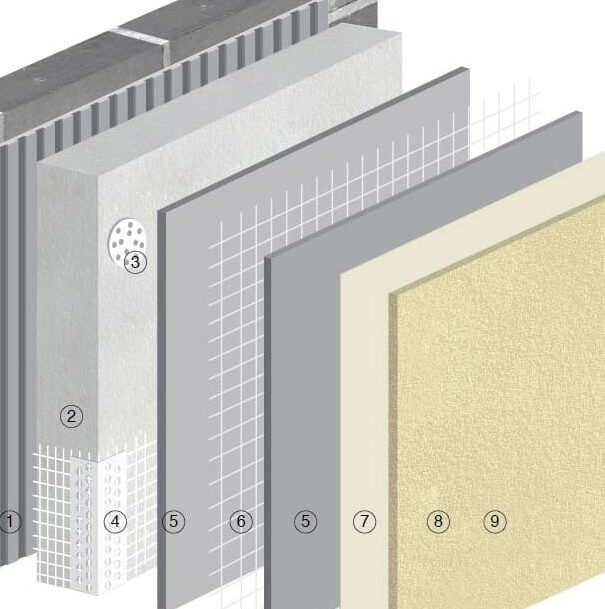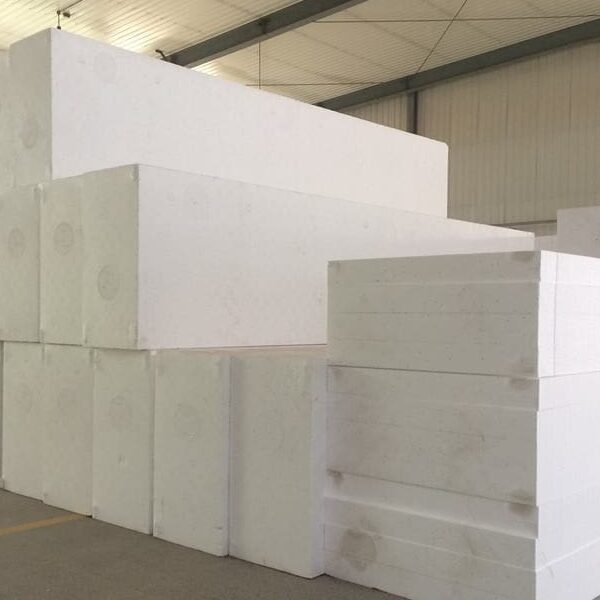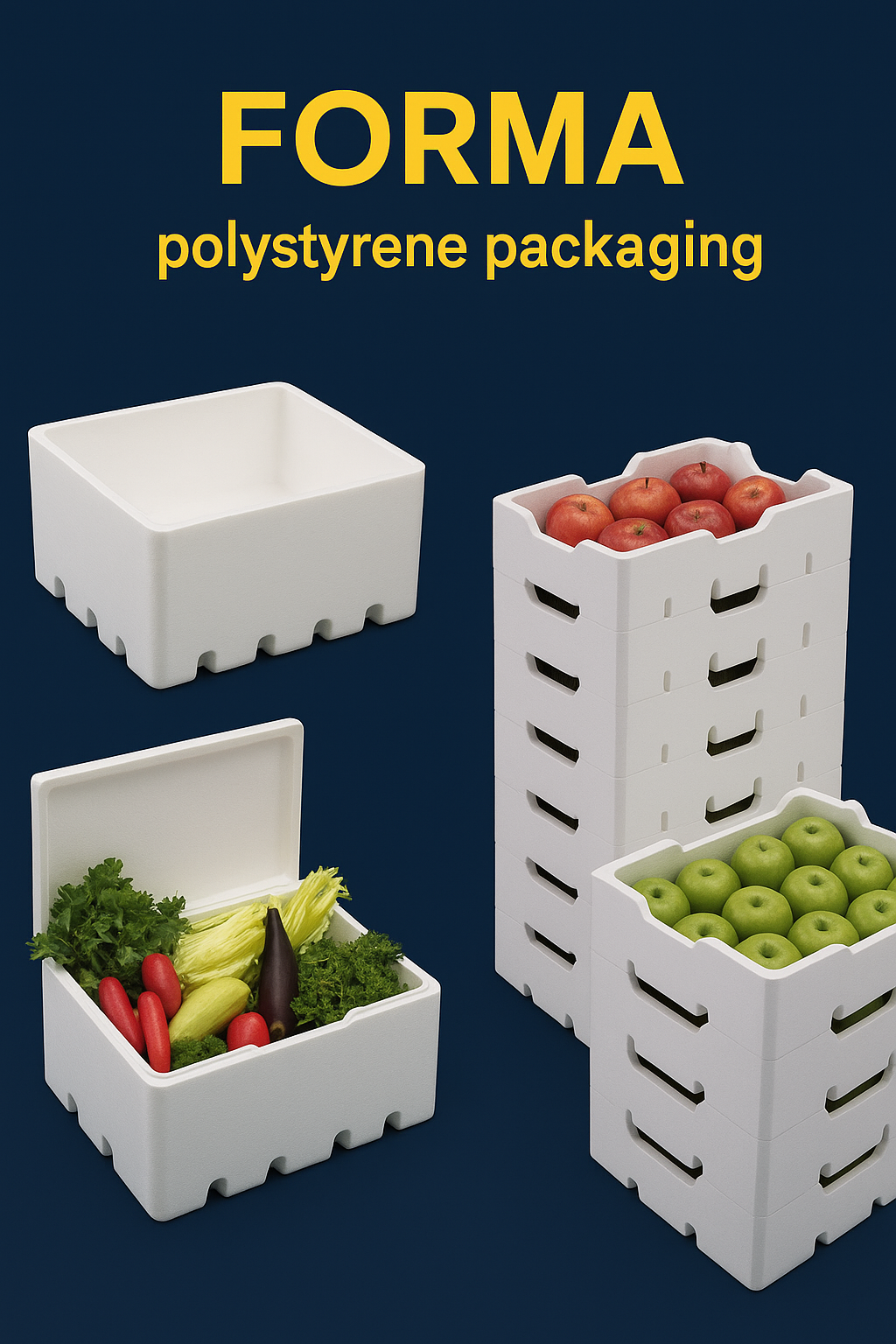Introduction
If you’re in Saudi Arabia, UAE, Qatar, Oman, Kuwait, or Bahrain and working in construction or insulation, you’ve probably heard about Extruded Polystyrene foam boards. These XPS boards are everywhere in the region—used for keeping buildings cool, waterproofing foundations, insulating highways, and even in cold storage solutions.
But what exactly makes XPS Boards different from other insulation materials like EPS (Expanded Polystyrene)? And why is it so widely used in the GCC’s extreme climate? What is Extruded Polystyrene Board Used For in GCC? Let’s break it down.
Table of Contents
Polystyrene Insulation Board
Polystyrene Insulation Board is one of the most reliable solutions used for wall thermal insulation in Saudi Arabia due to its strong Polystyrene structure and excellent resistance to heat transfer. This type of insulation board is preferred in both residential and commercial buildings across the GCC, especially in regions with extremely high temperatures.
Key Polystyrene properties that make Polystyrene Insulation Board a highly demanded insulation material include:
- Dense Polystyrene structure that enhances thermal resistance and supports effective wall thermal insulation.
- High resistance to moisture and vapor which ensures long-term insulation performance and durability.
- Lightweight material that makes handling and installation easier on job sites.
- Long-term thermal stability compared to many other insulation materials.
- Helps reduce cooling energy consumption and supports higher energy efficiency inside buildings in Saudi Arabia.
Using Polystyrene Insulation Board is an ideal solution for achieving better wall thermal insulation performance, meeting Saudi building standards, and enhancing indoor comfort — especially when choosing premium quality products from Forma Insulation.
XPS Boards for Keeping Buildings Cool
In the GCC region, summer temperatures can hit 50°C+, which means cooling costs go through the roof—literally. That’s why XPS insulation boards are used in:
- Walls & Roofs – Stops heat from entering homes and offices, cutting down on AC bills.
- Ceilings & Floors – Keeps indoor spaces comfortable and energy-efficient.
- High-rise & Commercial Buildings – Many Dubai, Riyadh, and Doha developers use XPS to meet energy efficiency standards.
Unlike other insulation, XPS doesn’t lose its strength or shape over time, making it a solid long-term investment for builders.

XPS Waterproofing & Moisture Protection in Coastal GCC Areas
If you’re building near the coast—think Abu Dhabi, Bahrain, or Jeddah—you need insulation that can handle humidity and saltwater exposure. XPS is perfect for:
- Basements & Foundations – Prevents moisture buildup in underground structures.
- Tunnels & Bridges – Used in infrastructure projects across the GCC to keep materials from deteriorating.
- Waterproof Protection – Essential in desert cities where sandstorms and flash floods are common.
Since XPS doesn’t absorb water, it lasts way longer than other types of insulation, especially in humid environments like the UAE and Oman.
Want to ensure your project stays dry and secure? Reach out today to find out how XPS insulation can safeguard your foundations and underground structures.
XPS Insulation Boards in Roads, Railways & Airports
GCC countries are investing billions in roads, railways, and airports, and XPS insulation plays a huge role in making these projects durable.
- Highways & Roads – Used in Saudi Vision 2030 projects to prevent heat damage.
- Railway Tracks – Found in projects like Etihad Rail (UAE) & Riyadh Metro (KSA).
- Airport Runways – Helps prevent thermal expansion cracks in runways at Hamad International (Qatar) & Dubai Airport.
Since the ground shifts due to extreme temperatures, XPS helps stabilize roads and tracks, making transportation more reliable in the region.
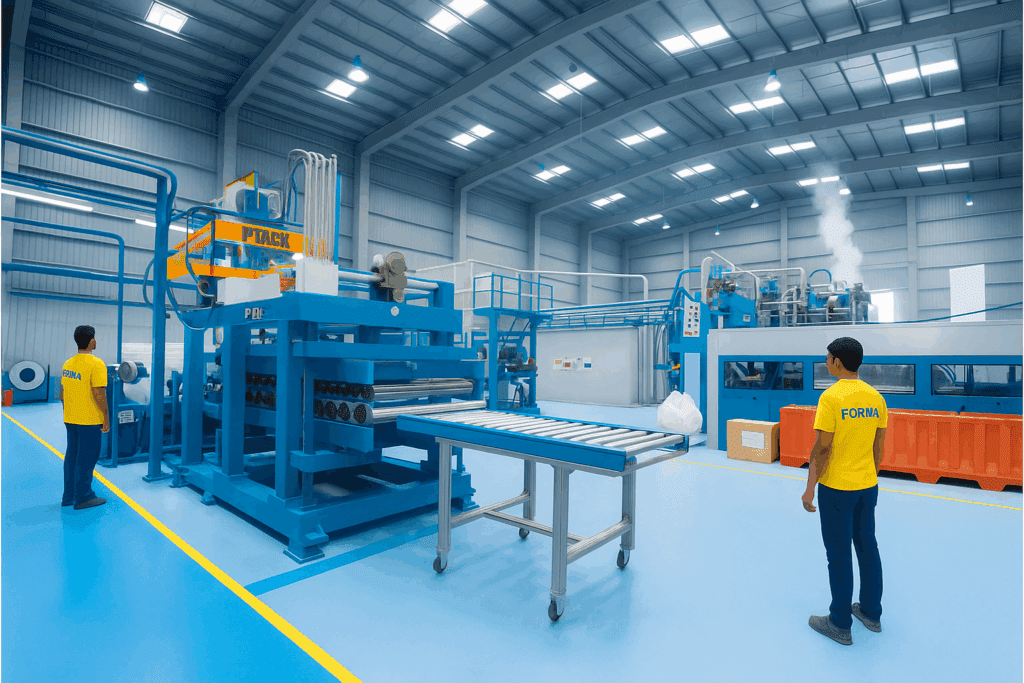
Extruded Polystyrene Boards for Cold Storage & Refrigeration
From fresh food storage to pharmaceuticals, XPS insulation is crucial for businesses that rely on temperature control.
- Cold Rooms & Freezers – Used in food warehouses in Riyadh, Dubai, and Muscat.
- Refrigerated Trucks – Keeps goods fresh during transport across the GCC.
- Ice Rinks & Industrial Cooling – Found in malls, stadiums, and industrial plants.
In the GCC’s hot climate, having reliable insulation isn’t just important—it’s a must. XPS helps maintain temperatures efficiently, reducing energy costs in the long run. For businesses requiring reliable temperature stability, XPS boards are the solution.

XPS for Pools, Tanks & Industrial Use
Beyond construction and infrastructure, XPS insulation is widely used in industrial applications where waterproofing and thermal resistance are critical.
- Swimming Pools – Cuts down on water heating costs in resorts and homes.
- Oil & Gas Tank Insulation – Used in petrochemical industries in KSA & Kuwait.
- Agricultural Storage – Helps regulate temperature in greenhouses and farms.
The waterproof and heat-resistant properties of XPS make it a must-have material in oil and gas, agriculture, and recreation projects. Get in touch with us for custom insulation solutions for your industrial needs.
XPS Insulation or EPS Insulation for Infrastructure Projects?
Through this comparative lens, we can understand the differences between XPS and EPS, despite their common ancestry.
| Feature | XPS (Extruded Polystyrene) | EPS (Expanded Polystyrene) |
|---|---|---|
| Moisture Resistance | Doesn’t absorb water (best for UAE & Bahrain humidity) | Absorbs water over time |
| Thermal Insulation | Works better in extreme heat | Less effective |
| Durability | High compressive strength | Weaker & breaks down faster |
| Best Used For | Construction, roads, waterproofing, cold storage | Packaging & light insulation |
For infrastructure projects in the GCC, XPS is the clear winner because it lasts longer, works better in extreme heat, and resists water damage.
Where to Buy XPS Insulation Foam Boards in the GCC?
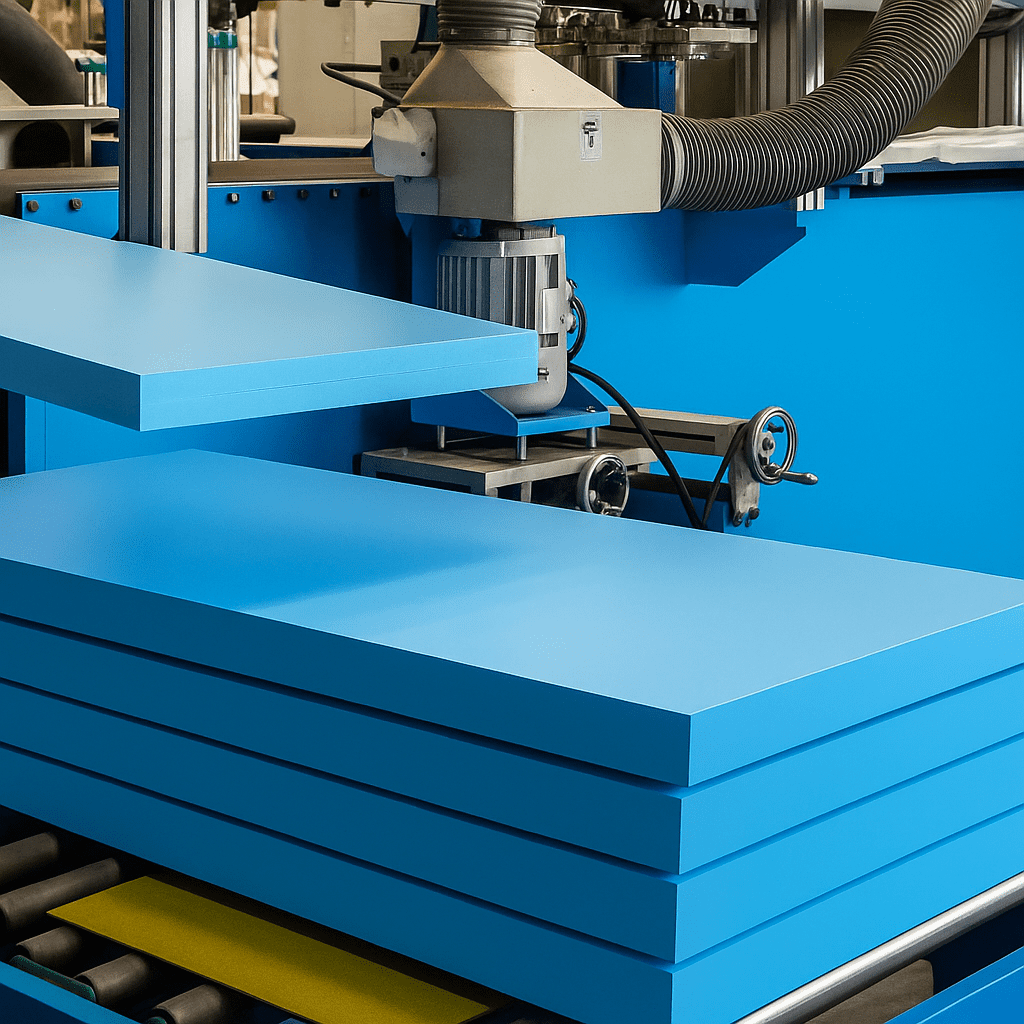
Looking for high-quality XPS boards for your project in the GCC? At Forma Insulation, we are proud to be the largest extruded polystyrene manufacturer and supplier of XPS insulation boards in the region. We provide:
- Custom sizes and thicknesses tailored to your needs
- Fast delivery across the region, including Saudi Arabia, UAE, Qatar, Oman, Kuwait, and Bahrain
- Competitive pricing on bulk orders
Get in touch with us today for a free consultation and receive a quote tailored to your project’s needs. As the leading XPS supplier in the GCC, we are committed to delivering premium insulation solutions that meet the highest standards of quality and performance.

Final Thoughts: Extruded polystyrene for construction in GCC
With GCC governments pushing for energy efficiency, using XPS insulation in construction, infrastructure, and cold storage is more important than ever. Whether you’re working on a skyscraper in Dubai, a road project in Riyadh, or a food storage facility in Qatar, XPS offers the durability, thermal performance, and cost savings you need.
Read more about: thermal insulation material
